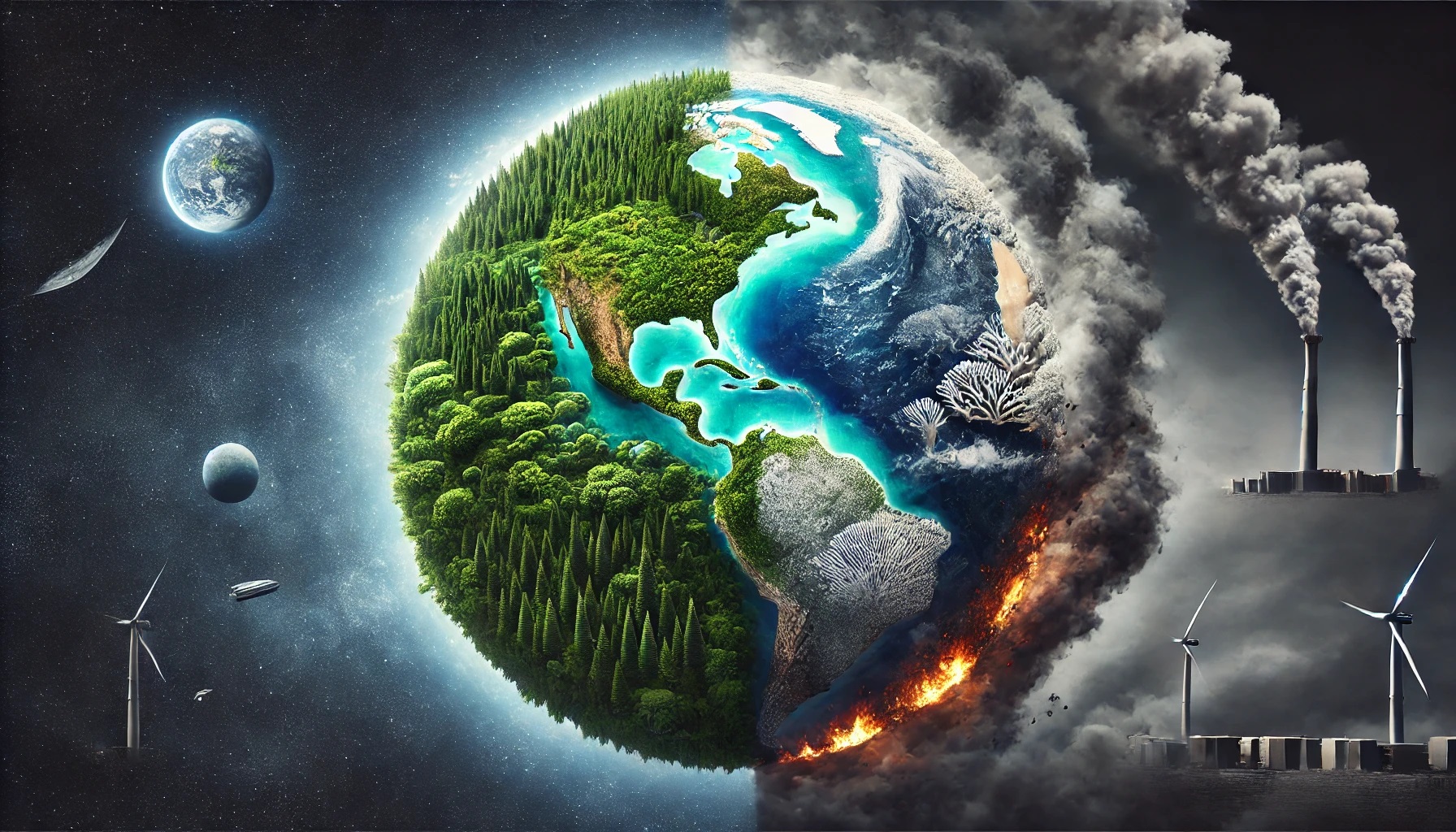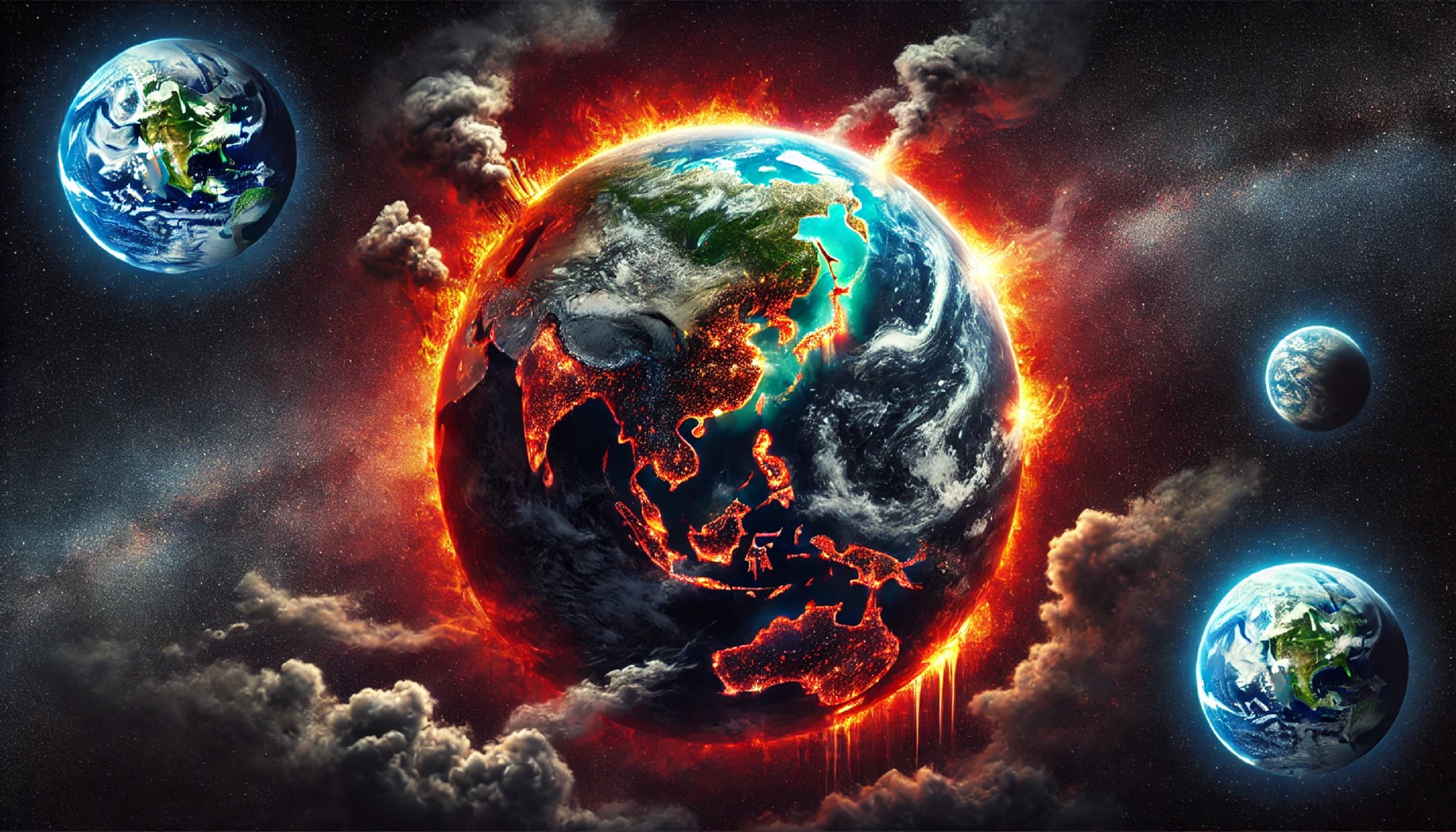The summer and spring of 2024 have seen record-breaking temperatures and devastating climate events, underscoring the urgent need for action on climate change. The world continues to experience unprecedented heat waves, and the oceans are warming to levels never before recorded in human history. Amidst these alarming trends, the stark contrast between the climate policies of President Joe Biden and former President Donald Trump becomes ever more apparent.
President Joe Biden: A Commitment to Combat Climate Change
President Biden has made combating climate change a cornerstone of his administration. From rejoining the Paris Agreement on his first day in office to spearheading ambitious investments in renewable energy, Biden’s approach is grounded in scientific consensus and a clear recognition of the climate crisis.
Rejoining the Paris Agreement: One of Biden’s earliest acts as president was to reenter the Paris Agreement, reversing Trump's decision to withdraw. This move signaled a renewed commitment to global cooperation in addressing climate change. The Paris Agreement aims to limit global warming to well below 2 degrees Celsius, with efforts to keep it below 1.5 degrees Celsius.
Historic Investments in Renewable Energy: The Biden administration has allocated unprecedented funding for clean energy initiatives. This includes significant investments in electric vehicle (EV) infrastructure, aiming to make EVs more accessible and affordable to Americans. Biden’s infrastructure plan also includes extensive funding for solar and wind energy projects, promoting the transition away from fossil fuels.
The Inflation Reduction Act: This landmark legislation, passed in 2022, includes provisions for tax incentives to encourage the adoption of renewable energy technologies, subsidies for EV purchases, and investments in energy-efficient buildings. The act also aims to reduce greenhouse gas emissions by promoting cleaner energy sources and improving energy efficiency across various sectors.
Climate Adaptation and Resilience: Recognizing the immediate impacts of climate change, Biden's policies also focus on adaptation and resilience. This includes funding for communities to build infrastructure that can withstand extreme weather events, such as floods and hurricanes, which are becoming more frequent and severe due to climate change.
Former President Donald Trump: A Vision of Climate Change Denial

In stark contrast, former President Donald Trump’s tenure was marked by a consistent rejection of climate science and a focus on bolstering the fossil fuel industry. Trump’s rhetoric and policies often downplayed or outright dismissed the reality of climate change, framing it as a hoax and undermining efforts to address it.
Climate Change Denial: Trump has repeatedly called climate change a hoax, despite overwhelming scientific evidence to the contrary. During a campaign rally in 2016, he famously said, "The concept of global warming was created by and for the Chinese in order to make U.S. manufacturing non-competitive." This statement exemplifies his tendency to dismiss scientific consensus and promote conspiracy theories.
Withdrawal from the Paris Agreement: One of Trump’s most significant actions was to withdraw the United States from the Paris Agreement, arguing that it was unfair to the U.S. and would harm the economy. This decision was widely criticized by environmentalists, scientists, and international leaders, who saw it as a step backward in global climate efforts.
Promoting Fossil Fuels: Trump’s administration rolled back numerous environmental regulations and promoted the expansion of fossil fuel extraction. This included opening up public lands for oil and gas drilling, reducing restrictions on coal mining, and attempting to weaken fuel efficiency standards for vehicles. Trump's energy policy was encapsulated in his mantra of "drill, baby, drill," emphasizing increased domestic production of oil and gas.
Attacks on Renewable Energy: Trump has also been a vocal critic of renewable energy, particularly wind power. At a rally in 2019, he claimed, "If you have a windmill anywhere near your house, congratulations, your house just went down 75% in value." He also made unfounded claims about wind turbines causing cancer and being responsible for the deaths of numerous birds. These statements have been widely debunked but illustrate his hostility towards renewable energy solutions.
The Silent Crisis: Dying Barrier Reefs and Warming Oceans

The world's barrier reefs, once vibrant hubs of marine biodiversity, are now facing an unprecedented crisis. These delicate ecosystems are undergoing a dramatic transformation due to the combined effects of warming oceans and increased carbon dioxide (CO2) levels. The situation underscores the broader impacts of climate change, highlighting the urgent need for comprehensive action.
The Bleaching of Barrier Reefs: Coral reefs, often referred to as the "rainforests of the sea," are among the most diverse and productive ecosystems on Earth. However, they are incredibly sensitive to changes in water temperature. When ocean temperatures rise, even by a small margin, corals expel the symbiotic algae (zooxanthellae) living in their tissues. This process, known as coral bleaching, leaves the corals white and devoid of life. Without these algae, the corals lose their primary source of energy and become more susceptible to disease and death.
In recent years, mass bleaching events have become more frequent and severe. The Great Barrier Reef, the largest coral reef system in the world, has experienced multiple bleaching events since 1998, with particularly devastating occurrences in 2016 and 2017. These events are directly linked to rising sea temperatures, a consequence of global warming driven by increased greenhouse gas emissions.
Oceans as Heat and CO2 Sinks: The world's oceans play a crucial role in regulating the Earth's climate. They absorb about 90% of the excess heat generated by greenhouse gas emissions, which has profound effects on marine ecosystems. This absorption of heat has led to a significant increase in ocean temperatures, contributing to the widespread bleaching of coral reefs.
In addition to heat, the oceans also absorb a substantial amount of CO2 from the atmosphere. While this process helps to mitigate the effects of climate change on land, it comes at a cost. When CO2 dissolves in seawater, it forms carbonic acid, which lowers the pH of the water, leading to ocean acidification. Acidification weakens coral skeletons, making it harder for them to grow and recover from bleaching events.

The Impact of Fossil Fuels: The burning of fossil fuels is the primary driver of increased CO2 levels in the atmosphere. Coal, oil, and natural gas, when burned for energy, release vast amounts of CO2, which traps heat in the atmosphere and leads to global warming. Deforestation for agriculture and grazing further exacerbates the problem by reducing the number of trees that can absorb CO2.
Despite the clear scientific consensus on the causes and effects of climate change, some political figures, including former President Donald Trump, have downplayed or outright denied its reality. Trump has repeatedly referred to climate change as a "hoax" and has rolled back numerous environmental regulations aimed at reducing greenhouse gas emissions. His administration promoted fossil fuel extraction, including oil drilling and coal mining, and withdrew the United States from the Paris Agreement, which is an international effort to combat climate change.
In contrast, President Joe Biden has taken significant steps to address climate change and mitigate its effects on the oceans and coral reefs. His administration rejoined the Paris Agreement and has committed to reducing greenhouse gas emissions through various initiatives. These include investing in renewable energy sources such as wind and solar power, promoting the use of electric vehicles, and enhancing energy efficiency across different sectors.
Biden's policies also focus on protecting and restoring marine ecosystems. This includes funding for research and conservation projects aimed at preserving coral reefs and other vulnerable habitats. By addressing both the causes and effects of climate change, Biden's administration aims to create a more sustainable future for the planet's oceans and the countless species that depend on them.
The contrasting approaches to climate change taken by Presidents Biden and Trump illustrate the significant impact of political leadership on environmental policy. While Trump’s administration favored fossil fuel expansion and climate change denial, Biden’s policies emphasize scientific understanding and proactive measures to combat the climate crisis. As the world's oceans continue to warm and coral reefs face existential threats, the need for informed, decisive action has never been more critical. The future health of our planet depends on our ability to recognize the reality of climate change and to implement effective solutions that protect and preserve the natural world.






















